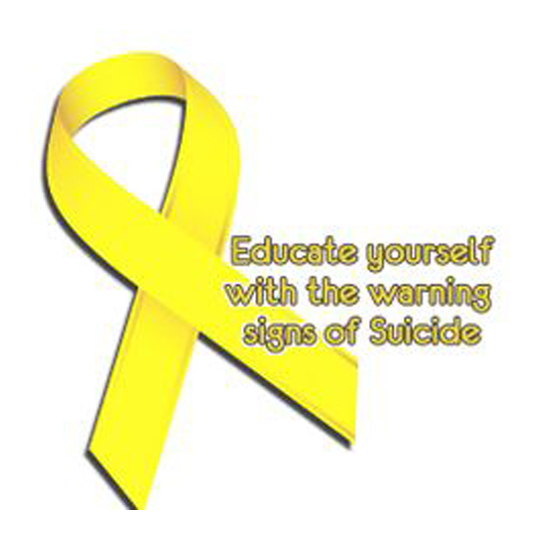“Suicide knows no boundaries; mental illness knows no boundaries.”

by Sara Ritsch
Staff Writer
Gabriel Jourden, co-chair for the Oklahoma chapter of the American Foundation for Suicide Prevention (AFSP), lost both his father and younger brother to suicide. Six months after the loss of his brother, Jourden became active in the beginning of the AFSP Oklahoma chapter – soon to help save hundreds, if not thousands, of Oklahoman lives.
AFSP is “the largest private funder of suicide prevention research, and it’s at the core of everything we do,” Jourden reads from the AFSP pamphlet. “Much of what is known about suicide and how it can be prevented comes from studies we’ve funded,” featuring neurobiological, psychosocial and genetic research endeavors. A mighty cause.
“Our current programs and endeavors are education and training for schools, churches, teachers and first responders. We have a ‘More Than Sad’ program provided for schools. It’s a video provided in two stages: One, for students; and two, for teachers,” Jourden explains. “The video we provide is followed by a Q&A session, and we show the teachers so they know how to answer questions.”
The “More Than Sad” program has taught more than a million teens about depression, showing them how to reach out for help and destigmatizing mental health conditions.
Although mental health is often connected to the risk of suicide, AFSP warns not to too closely associate the two. There are always preventable methods to thoughts of suicide, and there are always treatments for those who suffer from mental illness. However, AFSP does focus on the mental illness aspect of suicidal thoughts.
“It doesn’t have boundaries. It affects every class of person there is. It doesn’t matter your sexual orientation, political affiliation, ethnicity or age,” Jourden says.
He explains that there is a strong need for suicide prevention awareness in lesbian, gay, bisexual and transgender youth. “Because [the LGBT] community is not openly accepted by everybody in society, their mental health issues get pushed aside. If someone is still ‘in the closet,’ then their mental issues will be in the closet as well. Their parents don’t know, friends don’t know.
“We’re trying to get that out. It doesn’t matter what you believe is right or wrong, every life matters.”
AFSP’s breakthrough Interactive Screening Program “reaches people at risk who are least likely to seek help,” he says. They provide support for those who struggle with thoughts of suicide or who have survived an attempt.
“At the time of my first loss in 1988, there was no program. At the time, there was only counseling. It wasn’t directed towards suicide loss. It was directed towards fundamental development. Now, we have clinics and professionals that base an entire program on suicide prevention and after-loss of suicide. It helps people cope better,” says Jourden.
Every June, AFSP hosts a motorcycle ride. In September, they host the Out of the Darkness 5k Walk, which is their largest fundraising event of the year. Jourden says this walk impacted him greatly following the loss of his brother. “I was forced to go because my wife and friends saw me dipping into a depression of not knowing who to turn to or talk to. They gathered behind me, rallied and supported me.
“It was the greatest day in that environment I can imagine. It is an emotional day. There are tears. But it’s not a depressing atmosphere, it’s an uplifting atmosphere. If you see someone crying, you may not know them – put your arm around them. They know you’re there for the same reason they’re there. Their loss may be more tragic to them than others, but the losses are the same.”
In 2014, AFSP Oklahoma was chartered as an official chapter, covering the entire state of Oklahoma. They are completely funded by donations and volunteer efforts, and they are always looking to expand. Each of their volunteers has their own job or career, working for AFSP in their spare time. Jourden himself is a UPS driver, which is where he coincidentally met Kirk Smalley, founder of the Stand for the Silent organization, and father of Ty Smalley, whose life was lost to suicide.
“Anybody can help. You don’t have to donate money – donate time. We want everybody to know that everybody has been affected by suicide, whether personally or a distant relative. Even though I have two suicide losses in my direct family, I don’t go home every day and think of taking my own life. I think about how to prevent other people from doing that.”
To donate, volunteer and find out more, visit www.AFSP.org.
The American Foundation for Suicide Prevention is dedicated to saving lives and bringing hope to those affected by suicide. AFSP creates a culture that’s smart about mental health through education and community programs, develops suicide prevention through research and advocacy, and provides support for those affected by suicide.





